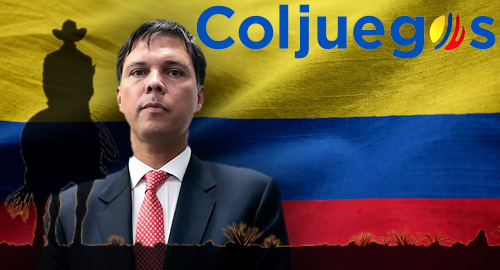 Colombia’s gambling market is losing the man who helped guide the country to becoming the first South American market to formally legalize and regulate online play.
Colombia’s gambling market is losing the man who helped guide the country to becoming the first South American market to formally legalize and regulate online play.
This week, Juan B. Pérez Hidalgo, president of Colombia’s gambling regulatory body Coljuegos, relinquished the role he’s held for nearly five years. Taking his place is César Augusto Valencia, administrator at the Universidad del Norte in Barranquilla and a business graduate of Pennsylvania’s Drexel University, although a man with no obvious gambling experience.
Some Colombian media outlets had reported that Perez’s time was running short over a month ago. Those outlets also said Perez has been asked to vacate the role by Minister of Finance Alberto Carrasquilla Barrera for unspecified ‘political’ reasons.
During Perez’s tenure, Colombia approved online gambling legislation in 2016 and issued its first online license to Aquila Global’s Wplay.co site the following year. A flood of other operators soon followed, with Grupo Vinnare becoming the 18th licensee late last year (although only 16 platforms are currently active).
Speaking to local media outlet La Republica this week, Perez said online gambling accounted for 10% of Colombia’s gambling market last year but this share had effectively doubled so far in 2020, thanks in part to the pandemic’s impact on land-based gambling.
But online gambling has been growing since the market launched. Perez said online gambling generated COP5.36b (US$1.47m) in 2017, COP37.9b in 2018, COP78.5b last year and COP54.9m in the current year through September.
The market added a new wrinkle in October as Zamba.co became the first Coljuegos-licensed site to launch a live casino option following the regulator greenlighting such activity this spring.
Perez also oversaw efforts to block the domains of internationally licensed competitors of Coljuegos-licensed sites. While this has proven a Quixotic fight in nearly every market in which it’s been tried, Perez refused to give up, signing a new agreement this September with the Ministry of Information, Technology and Communications to take further action against the over 4,100 domains already on the blacklist.
Setbacks aside, Colombia’s pioneering path attracted not only local Spanish-language operators but also US operator Rush Street Interactive and European firm Betsson, which took a 70% stake in Colombian online licensee Colbet last July after making a similar acquisition in Brazil (a market that’s been trying to follow Colombia’s lead for years now).